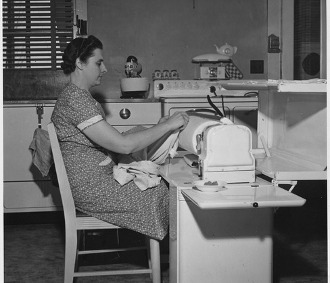 Despite more and more women finding themselves in top level jobs, workplace discrimination is still rife, research and legal experts have said.
Despite more and more women finding themselves in top level jobs, workplace discrimination is still rife, research and legal experts have said.
Earlier this month research conducted by Microsoft in Ireland to mark International Women’s Day identified gender discrimination, demands from home, and a lack of support for working mothers as the main perceived barriers to workplace promotion. Microsoft UK in 2011 was itself accused of sexism and hush money to silence critics.
Over in the US, a 2011 survey suggested that nearly two-thirds of Americans reported sexual harassment was a problem with around a quarter of women reporting to having been harassed at work, while UK figures suggest that around 50 percent of women in employment are, or have been, subject to sexual harassment of some form or other.
A partner at Aspen Morris Solicitors also confirmed that there had been a rise in discrimination cases over the past few years.
“We have seen a number of women coming to us complaining of this practice in the workplace,” the partner told ChannelEye. “This has ranged from sexual harassment to trouble when they have tried to go back to work after taking maternity leave.”
The latter is something one mother experienced when she tried to return to her job in a high profile technology company after having her daughter.
“I asked to take on part time hours, a request which was rejected,” she told ChannelEye.
“I then asked if I could work from home one day a week, which the company also rejected.
“After realising I was tied to a full time post I agreed to go back under these terms. However, before I could resume my position I received a phone call telling me my post had suddenly been made redundant.”
She is still locked in a legal dispute with the company, a well known international brand.
For another woman working in a predominately male industry, it was a case of grin and bare it.
“I had comments about my boobs, if my hair or make-up wasn’t perfect I’d also be asked if I’d had a “late night” followed by nudges,” she said. “However, because I was the only girl there I had to take it as banter.”
One woman however who didn’t sit on her laurels was Adria Richards who was given the sack and subjected to online abuse when she tweeted about her experiences of sexual discrimination in the workplace.
The developer evangelist at Sendgrid, a tech company that manages emails, was an attendee at PyCon, a tech conference. However, she took to heart a conversation two male developers, employed by Play Haven, were having behind her during the conference.
She claimed within this they used the words “dongles” and “forking”, which although can be used legitimately in technology, could also be taken as offensive innuendo. Adria took them to be used in a sexual way – she snapped photos of the men and posted them on Twitter, along with their comments.
One of the developers was sacked as a result, leading to offensive comments being directed at Adria as well as a DDoS attack on SendGrid’s site.





